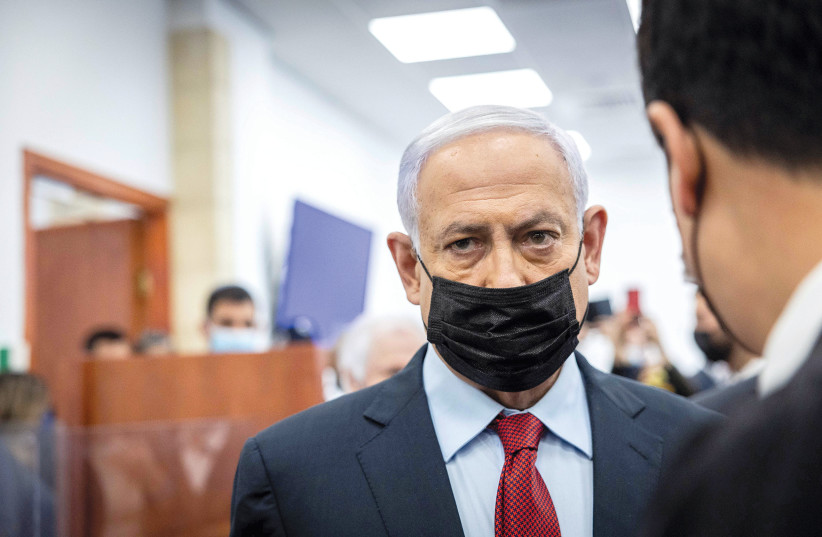The trial of former prime minister and current candidate Benjamin Netanyahu is scheduled to restart on Tuesday after an approximate six-week summer recess, smack in the middle of election season.
The trial opened in May 2000, with witnesses first called in April 2021.
To date, the trial has focused primarily on Case 4000, the Bezeq-Walla Affair.
However, this past summer, the prosecution started to dig deeper into Case 1000, the Illegal Gifts Affair.
When the trial resumes, it will be the tail-end of the cross-examination of Hadas Klein, an aide to tycoon billionaire Arnon Milchan and a key prosecution witness against Netanyahu.
When the defense finishes cross-examining Klein, the prosecution hopes to call many of the other witnesses in Case 1000. These include Milchan’s driver, his house manager, suppliers who sold the cigars and champagne to Milchan so he could provide them as gifts to Netanyahu, and eventually, Milchan himself.
Netanyahu trial: Prosecution to shift gears back to Case 4000
Next, the prosecution hopes to shift gears back to Case 4000, at which point it would bring various government regulator witnesses to try to prove that Netanyahu and his lieutenants improperly pressured them into helping Bezeq, and after that various police interrogators of various witnesses in the case.
Finally, the prosecution would return to another round of Case 1000 witnesses and eventually conclude by calling witnesses for Case 2000, the Yediot Ahronot-Yisrael Hayom Affair.

Next, the prosecution hopes to shift gears back to Case 4000. At that point, it will bring various government regulator witnesses to try to prove that Netanyahu and his lieutenants improperly pressured them into helping Bezeq. After that, the prosecution will call police interrogators of various witnesses in the case.
Finally, the prosecution will likely return to another round of Case 1000 witnesses and eventually conclude with calling witnesses for Case 2000, the Yediot Aharonot-Israel Hayom Affair.
The defense has complained that the prosecution is improperly delaying calling the police interrogators. The defense is looking forward to “feasting” on those witnessed for various errors it has already proved they made.
However, the court is likely to let the prosecution have the schedule it wants for its own witnesses. It will likely later extend that same courtesy to the defense when it calls its witnesses.
The Elovitches wait for legal response to court appeal
The court has yet to rule on a motion filed last month by former Bezeq and Walla owner Shaul Elovitch and his wife, Iris Elovitch, seeking to dismiss them from Case 4000 on the grounds of unjust treatment.
Most observers expect the court to reject that motion and let the trial proceed.
The Elovitches are at the center of the case against Netanyahu. Shaul is accused of engaging in a bribery scheme with the former prime minister of favorable government treatment for Bezeq in exchange for favorable media coverage at Walla for Netanyahu.
Iris is accused of involvement in select aspects of the media coverage at the Walla side of the scheme. Accusations include passing messages between Sara Netanyahu and Shaul or other Walla personnel, and of knowledge that there was a quid pro quo.
If there is no plea deal – considering the time needed for defense witnesses and for the court to contemplate and write out its verdict – the trial could easily last another year and possibly longer.
